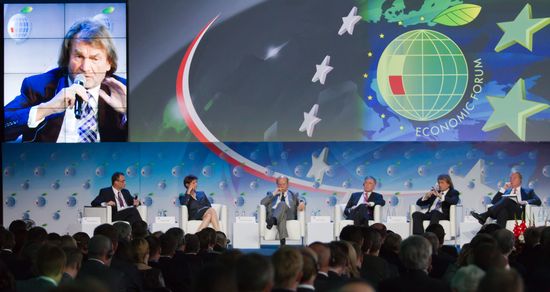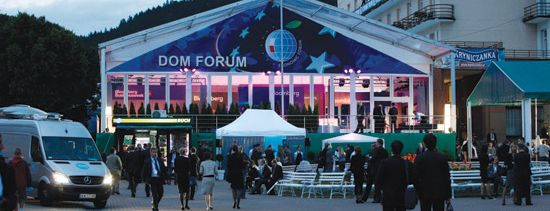Dictatorship in Belarus is “infectious”
44- 7.09.2012, 3:56
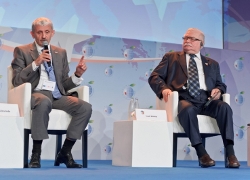
The theme of Belarus was raised at the Economic Forum in Krynica.
The 22nd Economic Forum in Krynica (Poland), which is nicknamed “Eastern Davos”, was held on September 4-6 and gathered 2500 participants – heads of states and governments, ministers, businessmen and chiefs of central banks, stock exchanges and governmental agencies from Europe, Asia and the US. Forum's aims include creating favourable environment for development of economic and political cooperation between the EU members and EU neighbours, discussing acute problems, such as the economic crisis in Europe, retreat from democratic principles in some countries, revolutions in North Africa and mechanisms of cooperation with such regions.
Presidents of Poland and Croatia Bronisław Komorowski and Ivo Josipović took part in the opening ceremony. Lech Wałęsa, a Polish ex-president and Nobel Peace Prize winner, was the honourable guest of the Krynica Forum. This year's Forum was held under the motto “New Visions for Hard Times. Europe and the World in the Face of Crisis”.
Natallia Radzina, the editor-in-chief of charter97.org website, took part in the debate “Independent Media in an Autocratic Society – Luxury or Necessity?”
Marcin Wojciechowski, the Vice President of the Polish International Solidarity Fund, noted as he opened the debate that the website charter97.org was among the main sources of independent information about Belarus today and suffered from pressure from the authorities for its activity.
Natallia Radzina spoke about almost absolute absence of freedom of speech in dictatorial Belarus. The Lukashenka regime has been eliminating all alternative opinions for 20 years and the work of few remaining independent media is fraught with big risks.
The journalist spoke about charter97.org website, which faced all tools of repression – from killings and arrests of journalists to raids on offices. Radzina told the audience about Iryna Khalip, the wife of presidential candidate Andrei Sannikov, who was convicted and in fact remains under house arrest; about Andrzej Poczobut, a journalist for Gazeta Wyborcza (Poland), who was charged with defamation of Alyaksandr Lukashenka for the second time this year; about photo correspondent Anton Surapin, who got arrested for photos of teddy bears and about recent mass arrests among moderators of pro-opposition communities on social networking websites.
Participants of the debate asked if the European Union was able to influence the situation in Belarus. Natallia Radzina replied that the EU unfortunately didn't have a clear strategy on the Belarusian dictatorship. A number of sanctions, including visa restrictions against officials and economic restrictions against some oligarchs, were introduced, but this process has been suspended. “Instead of intensifying pressure on Lukashenka, the EU chose a wait-and-see approach. The EU Council plans to discuss the Belarusian issue only in October 31 waiting for the results of the so called parliamentary election. Political prisoners are still being tortured in jails. They cannot wait until Europe is tired of election games with the Lukashenka regime,” the journalist noted.
A topic of retreat from democracy in Russia and Ukraine was also raised during the debate. The editor of charter97.org thinks it is the result of absence of proper attention of the world community to the dictatorship in Belarus. “It is in fact reanimation of the Soviet Union. Belarusian dictatorship is 'infectious'. Unpunished 20-year dictatorial rule of Lukashenka in the centre of Europe gives birth to authoritarianism in Russia and Ukraine. If the West continues to close eyes on this dangerous tendency, it may lead to even more catastrophic consequences,” the journalist noted.
Natallia Radzina met with former Polish President Aleksander Kwaśniewski, Chairman of Polish Prime Minister's Economic Council and former PM Jan Krzysztof Bielecki, Chair of the Economic Forum Council Zygmunt Berdychowski and discussed the issue of imposing further sanctions on Lukashenka regime with Senior Adviser to the EU High Representative for Common Foreign and Security Policy. The Belarusian problem was also raised in conversations with politicians, diplomats and experts from Poland, Ukraine and Russia.
Belarus was represented at the Economic Forum by head of the Belarusian Analytical Centre Andrei Vardamatski. Head of the Minsk Union of Businessmen and Employers Uladzimir Karahin, TUT.by founder Yury Zisser and representatives of small business.
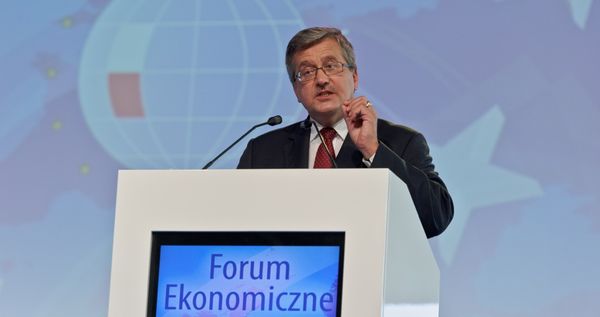
President of Poland Bronisław Komorowski
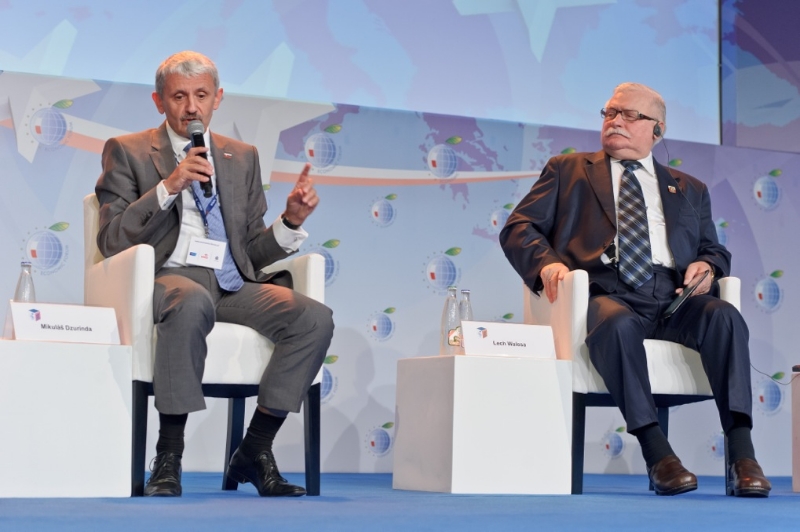
Polish ex-president Lech Wałęsa and Slovakia's former foreign minister Mikuláš Dzurinda
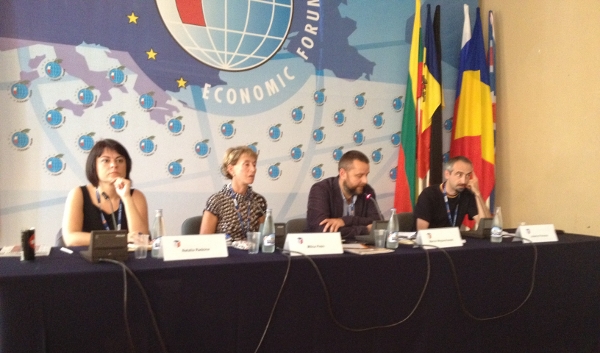
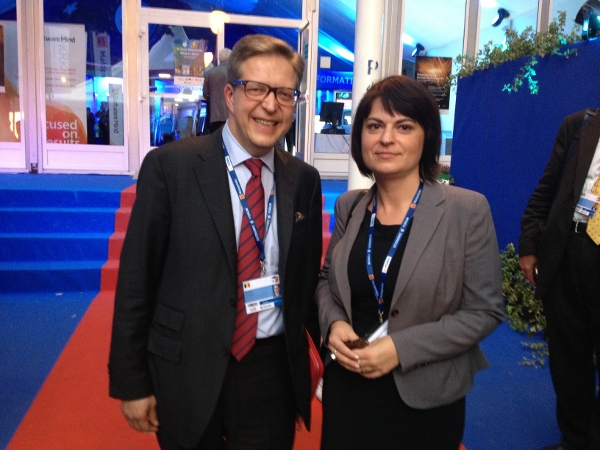
Natallia Radzina and Pirkka Tapiola, Senior Adviser to the EU High Representative for Common Foreign and Security Policy
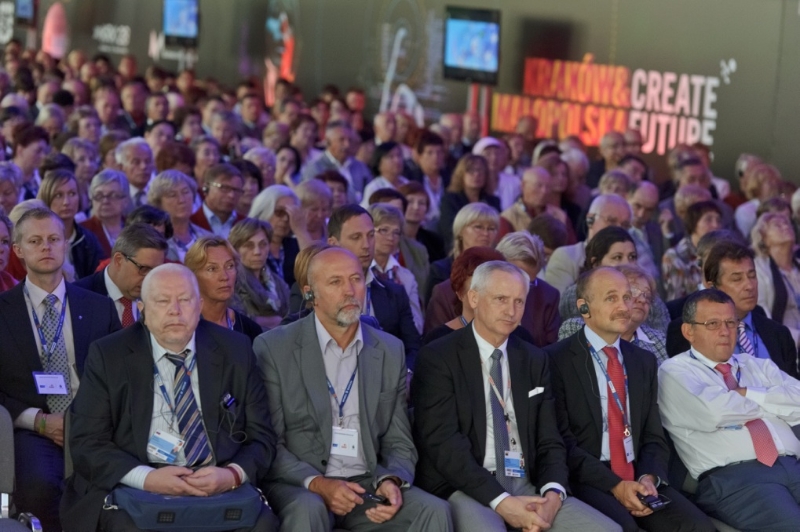
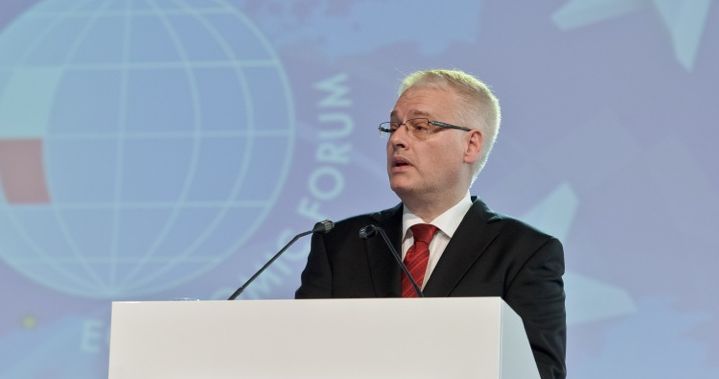
President of Croatia Ivo Josipović
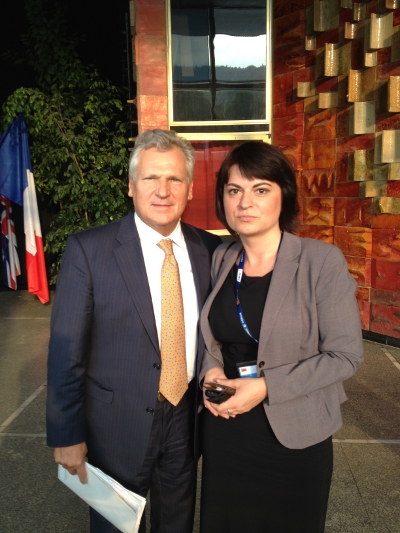
Polish ex-president Aleksander Kwaśniewski
